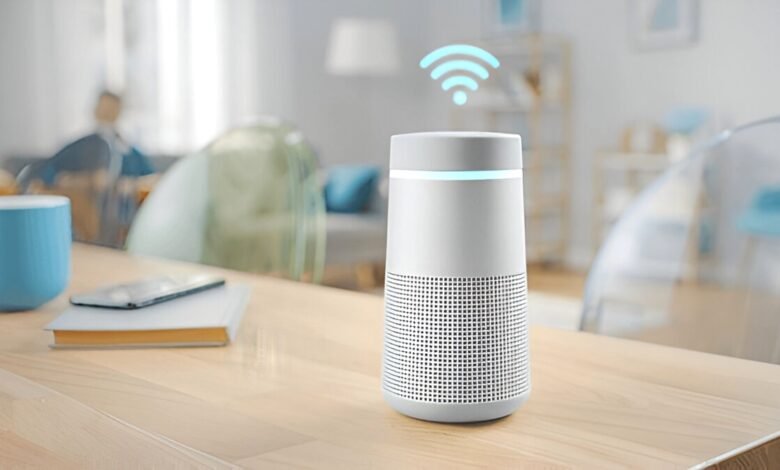Voice Assistants and Privacy: What German Users Should Know
Voice assistants like Amazon's Alexa, Google Assistant, and Apple's Siri have become integral to modern life, transforming how we interact with technology.

Voice assistants like Amazon’s Alexa, Google Assistant, and Apple’s Siri have become integral to modern life, transforming how we interact with technology. From setting reminders to controlling smart home devices, these tools offer convenience and efficiency. However, as their popularity grows in Germany, so do concerns about voice assistants and privacy. German users, known for their strong emphasis on data protection, need to understand the privacy implications of using these devices. This article explores how voice assistants work, the data they collect, the privacy risks involved, and practical steps to safeguard personal information, all tailored to the German context.
What Are Voice Assistants and How Do They Work?
Voice assistants are AI-powered software programs that respond to voice commands, often embedded in devices like smart speakers, smartphones, or wearables. In Germany, devices like the Amazon Echo, Google Nest, and Apple HomePod are common, with many households adopting them for tasks like playing music, checking the weather, or managing daily schedules.
How Voice Assistants Function
Voice assistants rely on advanced technologies such as natural language processing (NLP), machine learning, and cloud computing. When you say, “Hey Siri, what’s the weather in Berlin?” the assistant:
-
Listens for a wake word (e.g., “Alexa,” “Hey Google”) to activate.
-
Records the spoken command and sends it to a cloud server.
-
Processes the audio using NLP to interpret the request.
-
Responds by retrieving relevant information or performing the requested action.
This process, while seamless, raises questions about voice assistants and privacy, as audio recordings and personal data are often stored and analyzed remotely. For German users, understanding this mechanism is crucial, given the country’s stringent data protection laws, such as the General Data Protection Regulation (GDPR).
Why Privacy Matters
In Germany, privacy is a fundamental right, and the use of voice assistants intersects with this cultural and legal priority. The constant listening capability of these devices, combined with their reliance on cloud storage, can expose users to risks like data breaches or unauthorized access. This section sets the stage for a deeper exploration of the privacy implications.
The Data Voice Assistants Collect
To function effectively, voice assistants collect a variety of data. Understanding what information is gathered is the first step for German users to assess voice assistants and privacy risks.
Types of Data Collected
Voice assistants typically collect:
-
Audio Recordings: Every command you give is recorded and stored, often indefinitely, unless manually deleted.
-
Transcripts: Text versions of your voice commands are created for analysis and improvement of the assistant’s accuracy.
-
User Profiles: Information like your name, location, and preferences may be linked to your account.
-
Device Information: Details about your device, such as its model, IP address, and location.
-
Third-Party Interactions: If you use your assistant to interact with apps (e.g., ordering food or booking a ride), additional data like purchase history or travel patterns may be collected.
How Data Is Used
Companies use this data to:
-
Improve voice recognition and response accuracy.
-
Personalize user experiences, such as recommending music or products.
-
Target advertisements based on user behavior.
-
Train AI models to enhance functionality.
For German users, the collection of such data can feel intrusive, especially given the cultural emphasis on Datenschutz (data protection). The GDPR mandates transparency in data collection, but many users remain unaware of how much information their devices store.
Privacy Risks Associated with Voice Assistants
While voice assistants offer undeniable benefits, they also introduce significant privacy risks. German users, in particular, should be aware of these concerns to make informed decisions about using these devices.
Unauthorized Recordings
One of the biggest concerns with voice assistants and privacy is the potential for unauthorized recordings. Although assistants are designed to activate only upon hearing a wake word, there have been instances where devices recorded conversations without explicit activation. For example, in 2019, reports surfaced that Amazon employees listened to Alexa recordings for quality control, raising alarms in Germany, where such practices could violate GDPR.
Data Breaches and Hacking
Voice assistants store data in the cloud, making them vulnerable to cyberattacks. A data breach could expose sensitive information, such as your home address or personal routines. In Germany, where data security is a priority, the risk of hacking is particularly concerning, as it could lead to identity theft or misuse of personal data.
Third-Party Sharing
Many voice assistants integrate with third-party apps or services, which may not adhere to the same privacy standards as the primary provider. For instance, if you use Alexa to order from a German retailer, your data might be shared with that retailer, potentially without clear consent. The GDPR requires explicit permission for such data sharing, but users often overlook the fine print in privacy policies.
Government Surveillance
In some cases, voice assistant data has been requested by law enforcement for investigations. While this is less common in Germany due to strict privacy laws, the possibility of government access to recordings raises concerns about voice assistants and privacy for users who value anonymity.
German Privacy Laws and Voice Assistants
Germany has some of the strictest data protection laws in the world, making it essential for users to understand how these regulations apply to voice assistants and privacy. The GDPR, implemented in 2018, sets a high standard for data protection across the European Union, including Germany.
GDPR and Voice Assistants
Under the GDPR, companies operating voice assistants in Germany must:
-
Obtain explicit consent before collecting or processing personal data.
-
Provide clear information about what data is collected and how it is used.
-
Allow users to access, modify, or delete their data.
-
Implement robust security measures to protect user information.
For German users, this means you have the right to know exactly what data your voice assistant collects and the ability to request its deletion. Companies like Amazon, Google, and Apple have adapted their privacy policies to comply with GDPR, but users must actively manage their settings to enforce these rights.
The Role of the Bundesdatenschutzgesetz (BDSG)
In addition to the GDPR, Germany’s Federal Data Protection Act (BDSG) provides further protections. It emphasizes the principle of data minimization, meaning companies should collect only the data necessary for their services. For voice assistants, this could limit the retention of audio recordings or unnecessary user profiling.
Practical Implications for Users
German users can leverage these laws to hold companies accountable. For example, you can request a copy of your data from Amazon or Google to see what has been stored. If you find unauthorized recordings, you can file a complaint with the Bundesbeauftragte für Datenschutz und Informationsfreiheit (BfDI), Germany’s federal data protection authority.
How to Protect Your Privacy When Using Voice Assistants
Despite the risks, German users can take practical steps to enhance voice assistants and privacy while still enjoying the benefits of these devices. Below are actionable tips to safeguard your data.
Review and Adjust Privacy Settings
Most voice assistants allow users to customize privacy settings. For example:
-
Amazon Alexa: Go to the Alexa app, navigate to “Settings,” and enable the option to delete voice recordings automatically after a set period (e.g., 3 or 18 months). You can also disable the use of recordings for product improvement.
-
Google Assistant: In the Google Home app, visit “My Activity” to review and delete voice commands. You can also turn off personalized ads.
-
Siri: On your iPhone or HomePod, go to “Settings” > “Siri & Search” and disable options like “Listen for ‘Hey Siri’” to reduce constant listening.
Use the Mute Function
Most smart speakers have a physical mute button that disables the microphone. For German users concerned about voice assistants and privacy, muting the device when not in use is a simple way to prevent unintended recordings.
Limit Third-Party Skills or Apps
Voice assistants often support third-party “skills” (Alexa) or “actions” (Google Assistant). Before enabling these, review their privacy policies, as they may not comply with GDPR standards. Stick to trusted providers, especially those based in the EU, to ensure better data protection.
Regularly Delete Recordings
Make it a habit to delete stored voice recordings. For example:
-
Alexa: Say, “Alexa, delete what I just said” or use the app to delete recordings manually.
-
Google Assistant: Use the “My Activity” dashboard to delete specific commands or set up auto-deletion.
-
Siri: Delete Siri history via “Settings” > “Siri & Dictation History.”
Secure Your Home Network
Since voice assistants rely on Wi-Fi, securing your home network is critical. Use a strong password, enable WPA3 encryption, and consider setting up a separate guest network for IoT devices to isolate them from personal devices.
Be Mindful of What You Say
Avoid sharing sensitive information, such as bank details or passwords, near a voice assistant. While these devices are not designed to process such data, accidental recordings could still pose a risk.
Choosing a Privacy-Focused Voice Assistant
Not all voice assistants are equal when it comes to voice assistants and privacy. For German users, selecting a device with strong privacy features can make a significant difference.
Comparing Major Voice Assistants
-
Amazon Alexa: Offers robust privacy controls, such as voice deletion commands and auto-deletion settings, but its integration with Amazon’s ecosystem means more data sharing for advertising purposes.
-
Google Assistant: Provides detailed activity controls and auto-deletion options, but Google’s business model relies heavily on data collection for ads.
-
Apple Siri: Markets itself as privacy-focused, with on-device processing for many tasks and randomized identifiers to anonymize data. However, Siri’s functionality is more limited compared to Alexa or Google Assistant.
Emerging Privacy-Focused Alternatives
For German users prioritizing Datenschutz, consider alternatives like:
-
Mycroft: An open-source voice assistant that emphasizes user control and local processing.
-
Snips: A privacy-focused platform that processes data on-device, though it’s less widely available.
These options may lack the polish of mainstream assistants but align better with Germany’s privacy-conscious culture.
The Future of Voice Assistants and Privacy in Germany
As voice assistants evolve, so will their approach to voice assistants and privacy. In Germany, advancements in on-device processing, where data is analyzed locally rather than in the cloud, could reduce privacy risks. Companies are also exploring end-to-end encryption for voice data to enhance security.
Regulatory Developments
The German government and EU regulators are likely to introduce stricter guidelines for IoT devices, including voice assistants. Future updates to the GDPR or new laws could mandate shorter data retention periods or mandatory on-device processing, benefiting German users.
User Awareness and Advocacy
As awareness of voice assistants and privacy grows, German users are becoming more proactive in demanding transparency. Advocacy groups and privacy organizations, such as Chaos Computer Club, continue to educate the public and pressure companies to prioritize data protection.
Conclusion
Voice assistants offer undeniable convenience, but for German users, the intersection of voice assistants and privacy is a critical consideration. By understanding how these devices work, the data they collect, and the risks involved, you can make informed choices to protect your personal information. Leveraging Germany’s robust data protection laws, adjusting privacy settings, and choosing privacy-focused devices are all steps toward safer use. As technology evolves, staying informed and proactive will ensure that you can enjoy the benefits of voice assistants while safeguarding your Datenschutz.
Call to Action
Take control of your privacy today. Review your voice assistant’s settings, delete unnecessary recordings, and explore privacy-focused alternatives. If you have concerns about voice assistants and privacy, contact your device provider or consult Germany’s data protection authorities for guidance. Stay informed, stay secure, and enjoy technology on your terms.











